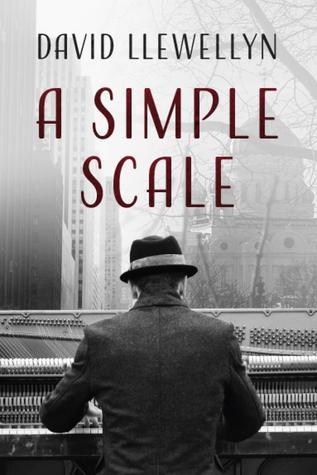"The music vibrated through the edgework and into her thighs and through her fingertips as they pressed each string against the neck . That sound, like a feather or a dust mote suspended in the air. The purest expression of all the things she would never say."
A Simple Scale is set over three periods in time and follows the mystery of who is the original composer of a piece of music. Sergey a composer in Leningrad in the late 30s and subsequently sent to the gulag; Sol a movie composer in 50s McCarthyite Hollywood; and Natalie, musicologist and Sol's PA in post 9/11 New York.
Each chapter is delivered from a different period and by a different character and as the novel progresses we unravel how they interweave with one another, pulled on through the story by the mystery of the music.
For me, it wasn't the mystery of who wrote the music that made me read on, but how each of the stories informed the other, and the underlying ideas behind the narrative. In each, story we can see history repeating not only on a micro, individual scale but on a macro global scale as well. This observation underpins the whole book and leaves questions about how the events of the 20th century have informed our present and what we as a society still have left to learn.
There are gems within the book - some descriptions that have stayed with me since putting it down. "You read John Hersey's account of Hiroshima in The New Yorker. There's something strangely beautiful about them, columns of smoke towering impossibly above the landscape, pushing apart all other clouds and cresting at the edge of heaven."
A Simple Scale is a really enjoyable read and it examines significant issues that are still incredibly relevant today of homosexuality, repression, war and ultimately how we as a society never seem to learn from our global histories.

